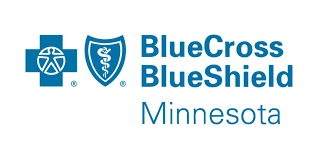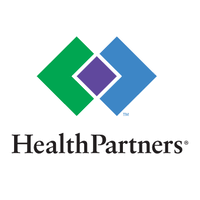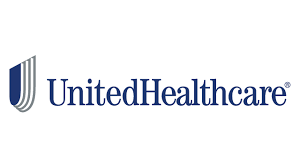About
Covid-19Waterbury & Associates
Intro
Employer Requirements & Carrier Response
As you are well aware, Minnesota business are operating under a COVID-19 state of emergency. While under this emergency, critical Minnesota businesses have been operating and as of today many non-critical businesses will begin the process of reopening and safely returning employees to work. Both critical and non-critical businesses are subject to certain workforce expectations and state requirements.
We know that many businesses and workers may be wondering about the process for bringing workers back into the workplace, and that many workers may have concerns about returning to the workplace given the threat of COVID-19. On April 30, Governor Walz issued Executive Oder 20-48 providing Minnesota businesses with an operational outline of how business will be conducted during the state of emergency. On May 13, Governor Walz issued Executive Order 20-54 which provides greater clarity on worker protections in light of the COVID-19 pandemic.
Below is a link to Executive Order 20-48 and the related specific requirements for critical and non-critical businesses.
In addition, you will find a link to Executive Order 20-56 reviewing the non-critical employer requirements for operation and the reopening of your business.
During the state of emergency, non-critical employers are required to establish and implement a COVID-19 Preparedness Plan. Below we have provided the Minnesota Department of Labor and Industry’s Preparedness Plan template for your review.
Within the Executive Order 20-48:
7. All exempted Activities and Critical Sector work activities should be conducted in a manner that adheres to Minnesota OSHA Standards and the MDH and CDC Guidelines related to COVID-19, including social distancing and hygiene. Under existing law and authority, DLI may issue citations, civil penalties, or closure orders to places of employment with unsafe or unhealthy conditions, and DLI may penalize employers that retaliate against employees who raise safety and health concerns. The CDC COVID-19 business guideline link is provided below.
8. Non-Critical Exempt Businesses. All workers who can work from home must do so. Workers in Non-Critical Exempt Businesses may return to their workplace upon the businesses’ completion of the requirements set forth in this paragraph. These exemptions apply only to travel to and from an individual’s home or residence and place of work and an individual’s performance of work duties that cannot be done at their home or residence. Travel may include transportation to and from child care or school settings as necessary to ensure the safe care of children. Non-Critical Exempt Businesses are those within the scope of subparagraph a of this paragraph 8 and that complete and comply with the requirements set forth in subparagraph b:
a. Non-Critical Exempt Businesses are limited to the following sectors: Industrial and manufacturing businesses, Office-based businesses and Retail businesses.
b. Requirements for Non-Critical Exempt Businesses. Before workers may return to work at a Non-Critical Exempt Business under this Executive Order, the Non-Critical Exempt Business must establish and implement a COVID-19 Preparedness Plan (“Plan”). Each Plan must provide for the business’s implementation of Minnesota OSHA Standards and MDH and CDC Guidelines in their workplaces. These requirements are set forth in guidance published by DEED and DLI (“Plan Guidance”).
Within the Executive Order 20-56:
7e. Non-Critical Businesses. If it has not done so already, a Non-Critical Business choosing to open or remain open must establish and implement a COVID-19 Preparedness Plan (“Plan”). Each Plan must provide for the business’s implementation of Minnesota OSHA Standards and MDH and CDC Guidelines in their workplaces. These requirements are set forth in guidance published by DEED and DLI (“Plan Guidance”) available on DEED’s website.
Required Plan content.
As set forth in the Plan Guidance, at a minimum, each Plan must adequately address the following areas:
A. Require work from home whenever possible. All Plans must ensure that all workers who can work from home continue to do so.
B. Ensure that sick workers stay home. All Plans must establish policies and procedures, including health screenings, that prevent sick workers from entering the workplace.
C. Social distancing. All Plans must establish social distancing policies and procedures.
D. Worker hygiene and source control. All Plans must establish hygiene and source control policies for workers.
E. Cleaning, disinfection, and ventilation protocols. All Plans must establish cleaning, disinfection, and ventilation protocols for areas within the workplace.
Customer facing businesses.
All Non-Critical Businesses that are customer facing (i.e., businesses that have in-person customer interactions) must include additional Plan provisions to keep the public and workers safe as set forth in the Plan Guidance available on DEED’s website.
This includes requirements that workers and customers must maintain physical distancing of 6 feet and that store occupancy must not exceed 50 percent of the normal occupant capacity as determined by the fire marshal. In customer facing businesses that share common areas, such as malls, all Plans must similarly include a facility occupancy that must not exceed 50 percent of the normal occupant capacity as determined by the fire marshal and provide an enhanced sanitizing, cleaning, and disinfecting regimen consistent with Minnesota OSHA Standards and MDH and CDC Guidelines for those common areas. All Plans must also include signage in common areas to discourage gathering.
iv. Optional templates. A template COVID-19 Preparedness Plan (see below), which covers the above requirements, is available as part of the Plan Guidance. We have provided a direct link below.
v. Certification and signature. Senior management responsible for implementing the Plan must sign and certify the Plan, affirming their commitment to implement and follow the Plan.
vi. Dissemination and posting. Each Non-Critical Business must provide its Plan, in writing, to all workers, and the Plan must be posted at all of the business’s workplaces in locations that will allow for the Plan to be readily reviewed by all workers. Where physical posting is impracticable, the Plan can be posted electronically, provided that the Plan is received by all workers and remains available for their review.
Other Resources
Centers of Disease Control and Prevention
Minnesota Dept. of Employment and Economic Development
Minnesota Department of Labor and Industry
Minnesota Department of Health
Get In Touch
St. Paul, MN 55105
[email protected]
651.269.0322








